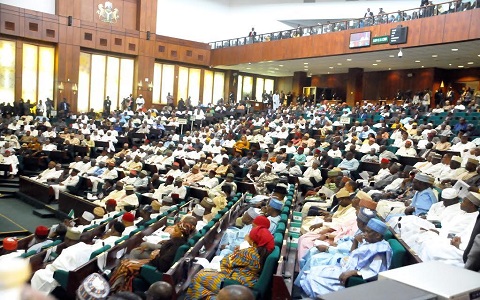

Recently, Minister of Labour and Employment, Senator Chris Ngige, said government is planning to review the wages of all political office holders in the country.
Senator Ngige explained that there was a need to review and streamline the wages and allowances given to political office holders, and the high wages earned by workers in certain government organizations.
For some time now, the issue of reducing the cost of governance had continued to generate reactions among Nigerians and government.
It is however sad to note that on the part of the government, it has been more talk, less action.
In order to overcome the challenges which this issue has generated, successive administrations since the return of the country to democratic rule, have always emphasized on the need to generate more money for national development.
Rather than reducing the cost, government expenditure keeps increasing, which does not add any benefit to the country’s development.
A major known source of huge expenditure is the retinue of aides appointed by the president, governors and lawmakers at all levels and the high cost of maintaining the National and State Assembly members, States’ Assemblies, as well as local government authorities.
In a survey conducted by the News Agency of Nigeria, NAN, governors in each state of the federation have an average of one hundred political appointees, including commissioners.
Recently, Ebonyi State governor, David Umahi appointed one hundred and eighty additional aides to serve as executive assistants, technical assistants and senior technical assistants.
Each budget year, so much money is allocated for recurrent expenditure, while little percentage is set aside for capital projects in critical areas of infrastructure like health, education and other key sectors that will enhance the quality of life of the people.
What is worrisome is that these huge expenditure have no significant effect on the economy and the overall development of the country.
The unaccounted-for security votes by the president and governors and the humongous allowances of political office holders, point to the fact that the presidential system which Nigeria operates is the most expensive and unsustainable system of government for any developing nation.
It is in the light of this that there should be an amendment of the 1999 constitution, to reduce the size of government through a reduction in the members of the federal and state cabinets, including the number of advisers and assistants, as well as membership of the National and State Assemblies.
Government owes it a duty to merge ministries, departments and agencies to pave way for the development of the country.
It is commendable, the effort of the government at reviewing the salaries of public office holders, as this will help to cut down expenditures.
As part of the reduction, the country should adopt a system which will make legislators serve on a part-time basis and be paid only sitting allowances.
It is pertinent to emphasize that a lean government will reduce waste, inefficiency, corruption and duplication of government functions, as well as make capital spending more effective.
There is also the need for the government to intensify the war against corruption by strengthening the constitutional powers of anti-corruption agencies in the area of arrest, investigation and prosecution of offenders.
Fawzeeyah Kasheem